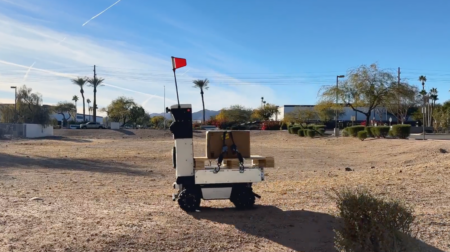Local governments across Japan have been deploying mechanical wolves amid a rise in bear attacks.
Bears have been increasingly sighted in urban areas, prompting authorities to use robotic wolves, which are normally used to deter animals from crops, to scare off bears and prevent civilian attacks.
One of the key contributors to the issue is young people leaving rural villages and migrating to bigger towns and cities, meaning villages are left empty or sparsely populated.
These village populations have already been shrinking thanks to Japan’s ageing population and means elderly people are left unprotected, according to authorities.
The robot wolves were first deployed in Takikawa city in 2020, according to Motohiro Miyasaka, president of Wolf Kamuy, which makes the wolves.
The company developed the system by studying the habit of wild animals, which revealed that they do not approach natural enemies, such as wolves.
Key features include an intense LED lights and a loud howl emitted from the machines to scare off animals. The estimated reach of this loud sound (about 90 dB) is about one kilometre.
“More and more, rural farmlands in the foothills that once acted as buffer zones between the bears and humans are disappearing,” said Shinsuke Koike, a professor at the Tokyo University of Agriculture and Technology.
During the past 60 years, more than 150 bear attacks have been recorded in the region of Hokkaido, which is home to the brown bear.
What’s more, 2021 was one of the deadliest years on record, with four people being killed by bears and at least 10 being injured in the region.







